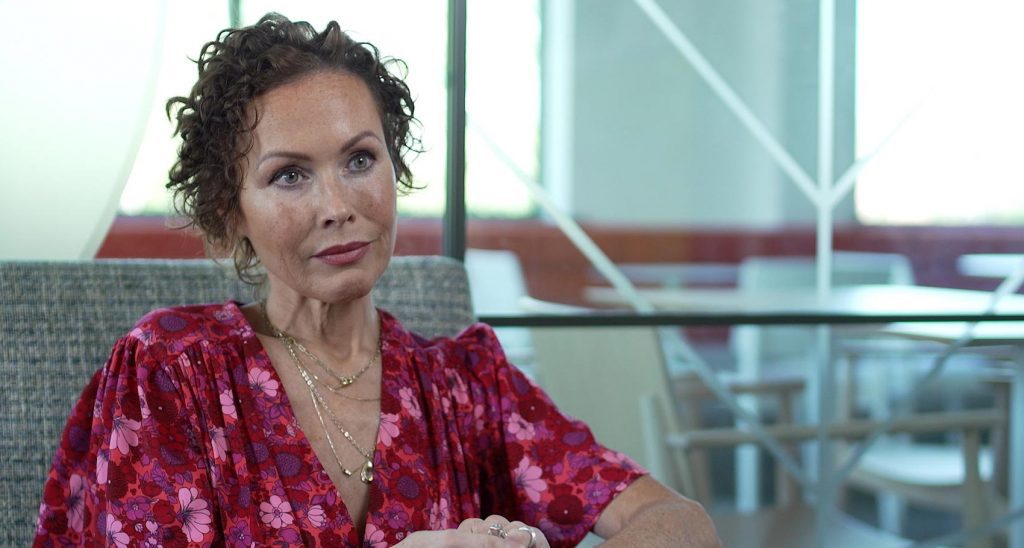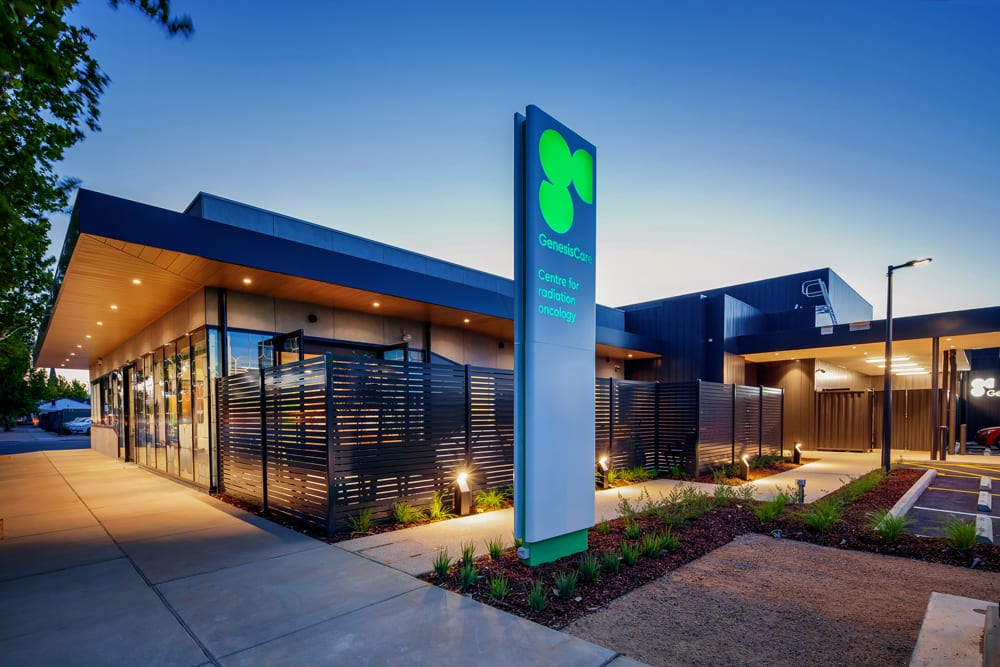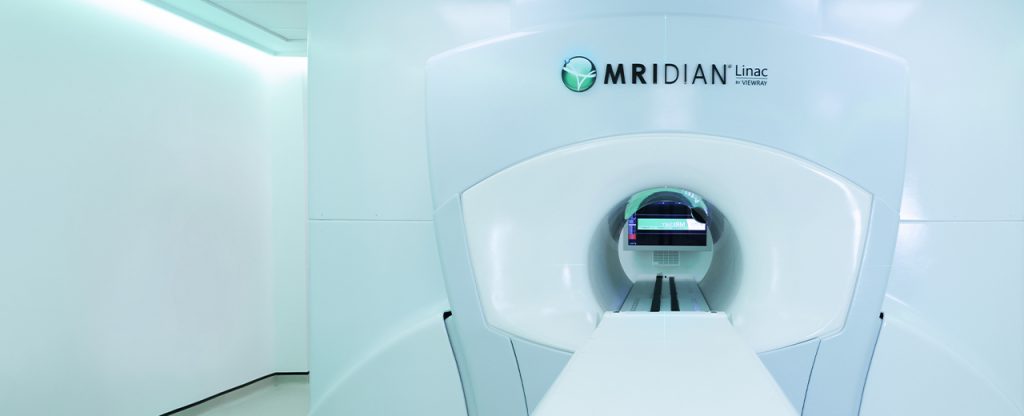Treating cancer differently
Over half of women admit to being in the dark about breast cancer treatments
- Approximately 55,000 breast cancer cases are diagnosed in the UK each year*, making it one of the most commonly diagnosed cancers
- Awareness of breast cancer is high but more than 1 in 10 (14%) are unaware that there are several different types of breast cancer
- Over half (58%) of women admit to being in the dark about the different breast cancer treatment options on offer, despite the massive leaps forward in innovation over the past decades
- Knowing there are different types of cancer and different treatments would make nearly two fifths (38%) more likely to seek help earlier
- GenesisCare commissioned the research, as part of its latest campaign that’s been supported by the Pink Ribbon Foundation and breast cancer survivor, Amanda Mealing, which aims to help equip women with knowledge of the different types of cancer and treatment pathways available and encourage them to seek treatment as early as possible
London, Sept 28th – Statistics show that breast cancer is one of the most commonly diagnosed cancers in the UK, and general awareness is high, with 65% of women able to identify signs and symptoms and six in 10 (61%) already self-examining regularly as recommended.
Despite this, new findings from leading global cancer care provider GenesisCare which have been supported by the Pink Ribbon Foundation, reveal more than one in 10 (14%) women believe all breast cancer is the same and one in six (15%) believe all treatments are the same, too – with over half feeling in the dark about breast cancer treatments (58%). This lack of awareness would dissuade nearly three in 10 (28%) women from reporting possible signs and symptoms to a medical professional.
One area where misconception is most widespread is surgery – with over a fifth (23%) of women believing a mastectomy or double mastectomy is a given within the course of treatment. Furthermore, three in 10 (31%) believe that any surgery involved would be major and half think it would leave them with lifelong scars (50%). Four in 10 (37%) worry this would affect their self-esteem and almost a fifth (17%) believe they would have unwanted tattoos from treatment.
The research has found the narrative of uncertainty also rings true for non-surgical treatment. Nearly a quarter (23%) believe chemotherapy is included in all breast cancer treatment and three in 10 (28%) think losing your hair is an inevitable side effect of treatment, when in fact it doesn’t always have to be.
Additionally, women worry about how treatment will fit into their lives, with 4 in 10 (42%) believing treatment will leave them feeling exhausted to the extent that they won’t be able to carry on with their daily routines, while the majority (70%) worry about how it would affect their family.
Furthermore, the research revealed that hormone treatment (33%) and targeted therapy (37%) – a use of drugs, which are administered alone or alongside chemotherapy to prevent the growth and spread of cancerous cells were the least recognised treatment options.
When it comes to treatment, it’s clear there’s also a large disparity in Brits collective understanding of the length of the process itself – 1 in 10 (11%) believe treatment will last at least a minimum of 3 months.
This lack of awareness also leads to heightened feelings of anxiety on the matter. A staggering 85% of those who were unsure about what treatment for breast cancer could involve, admitted the lack of knowledge made the prospect of receiving a diagnosis even more frightening, overwhelming (73%) and apprehensive (70%). A further seven in 10 (71%) admitted not knowing the full implications of treatment would leave them feeling unable to ask medical professionals the right questions.
A greater knowledge of treatments would dispel myths and give over half of women (52%) the confidence to know what questions to ask and where to get access to the right treatment option information (49%). This knowledge would also make nearly two fifths (38%) of women feel more confident to seek an earlier diagnosis. It’s therefore no surprise that nearly three quarters of women (72%) want to know more about the different treatment options available.
It’s also not just treatment where women feel in the dark, but in the stages of detection too. Over half (55%) of women are unsure at what age they become eligible for screening, with 1 in 10 (11%) believing it’s at 25 years old, when in fact it’s at 50 years old.
Amanda Mealing, actress, director and breast cancer survivor and campaigner comments: “A breast cancer diagnosis can be a scary experience made worse by a lack of understanding of what to expect. I know it was for me. But it doesn’t have to be that way for anyone else. I’d encourage everyone to have open and honest conversations with medical professionals and support services. They are there for you.
“There are many different types of breast cancer and therefore different types of treatment options. But more than anything early detection is key. I ignored a small lump, which, had I sought help at the time would have prevented me going through the extensive treatment I did. That said, I did go through it all and am still here to share my story. Give yourself options. Start talking!”
Prof P.G. Roy, Consultant Oncoplastic Breast Surgeon at GenesisCare comments: “We know that cancer diagnosis throws a curveball in an otherwise well person and sometimes there is a knee-jerk reaction to get started with treatment immediately. Timely treatment is crucial should you be diagnosed, however, taking time to understand the diagnosis and different treatment options available to you, helps to give you a greater sense of control. The innovations we’ve witnessed over the past years for the treatment of breast cancer means women can receive far more tailored and personalised treatment plans than ever before.
At GenesisCare, we are proud to offer our patients tailored treatment pathways using state of the art technology for diagnostic scans, genomic assays, fast-tracked genetic tests, and personalised approach to surgical options. As no two cases are the same, we ensure the treatment plan is bespoke to the individual, to provide the best possible cancer outcomes and quality of life for the patient.”
Jonathan Prince MBE, Chair of Trustees at the Pink Ribbon Foundation adds: “The research highlights that while breast cancer is a much talked about and understood topic at surface level, there’s still plenty more we can do to help women understand the nuances and differences in both detection and treatment. Facing breast cancer is an enormously difficult challenge for anyone – so it’s important for us to recognise where we can do more to broaden conversations, awareness and education amongst women, so they feel encouraged to raise any concerns as soon as possible and equipped to ask about the different options open to them at the stages of screening and treatment.”
ENDS
Media contact information:
Please contact the GenesisCare Press Team on genesiscare@tinmancomms.com or 07828 439 145/077909 563 396
About the research
The survey was completed by 2,000 UK based female respondents aged 18 – 75+. Between 4 – 8 August 2021.
About GenesisCare
GenesisCare delivers treatment to people with cancer and heart disease, the two largest disease burdens globally. We’re committed to leading the change in how care is given and are currently leading or participating in more than 150 clinical trials. The organisation employs more than 5,500 highly trained physicians, healthcare professionals and support staff across Australia, Europe, and now the U.S. This follows our acquisition of major U.S. integrated oncology provider 21st Century Oncology in May 2020.
Every year GenesisCare clinical teams see more than 400,000 people at more than 440 locations. For cancer treatment, that includes more than 300 locations in the U.S., 38 locations in Australia, 14 in the UK and 21 in Spain, with more than 30 new centres under development. We also offer cardiology and sleep services at more than 80 locations across Australia. Our purpose is to design care experiences that get the best possible life outcomes. We believe that care should be focused on the individual, not the condition, and are proud of our world-class patient satisfaction ratings. For more information visit www.genesiscare.com
About the Pink Ribbon Foundation
The Pink Ribbon Foundation (Reg. Charity No. 1080839) is a grant making trust with a mission to fund projects and provide financial support to UK charities which relieve the needs of people who are suffering from, or who have been affected by breast cancer or who work to advance the understanding of breast cancer, its early detection and treatment. The Pink Ribbon Foundation has very little infrastructure, it relies on the hard work given by Trustees, interested parties and its Patrons. This is done in order to maximise the amount, which goes to the charities that benefit from the funds raised.
More information can be found at www.pinkribbonfoundation.org.uk
www.Facebook.com/pinkribbonfoundation
Twitter @pinkribbonfound
Instagram @pinkribbonfoundation




